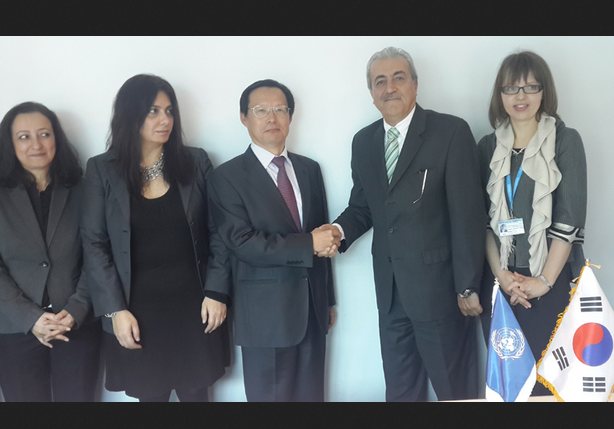The contribution will help World Health Organization (WHO) towork with the national health authorities and urgently strengthen the Early Warning and Response System in Libya via countrywide reporting network, as the current crisis in Libya has revealed significant gaps in the health sector, particularly in the systems for disease surveillance and information.
Gaps in these areas could result in the delayed detection and response to deadly infectious diseases identified in Libya such as influenza, measles, as well as increase the risk of potential diseases such asEbola. The contribution also will be utilized to build the capacity of middle and senior health care managers working in emergency response, as well as to establish a network of health care professionals that can address the emergency response in a coordinated and timely manner, which is crucial at a time whenUN and the international community in Libya have limited access due to the prevailing security conditions.
In line with its Migration Crisis Operational Framework,International Organization of Migration (IOM) will streamline the funds to address gaps and enhance humanitarian assistance, through providing direct Assistance to internally displacedfamilies and stranded migrants in Libya. IOM will procure and distribute emergency relief items to more than 3000 migrants and vulnerable displaced populations within Libya, and provide community based psychosocial support to 500 internally displaced individuals and migrants.
The proposed response will support an established network of Libyan civil society organizations, which have been instrumental so far in assessing needs and distributing first aid.
The contribution will allow World Food Programme (WFP) to continue their targeted food assistance programmes for the most vulnerable of the internally displaced persons (IDPs), with support from partners on the ground, in accordance with the pressing needs disclosed following the Inter-agency Assessment conducted in December 2014.
(Source: UNSMIL)





